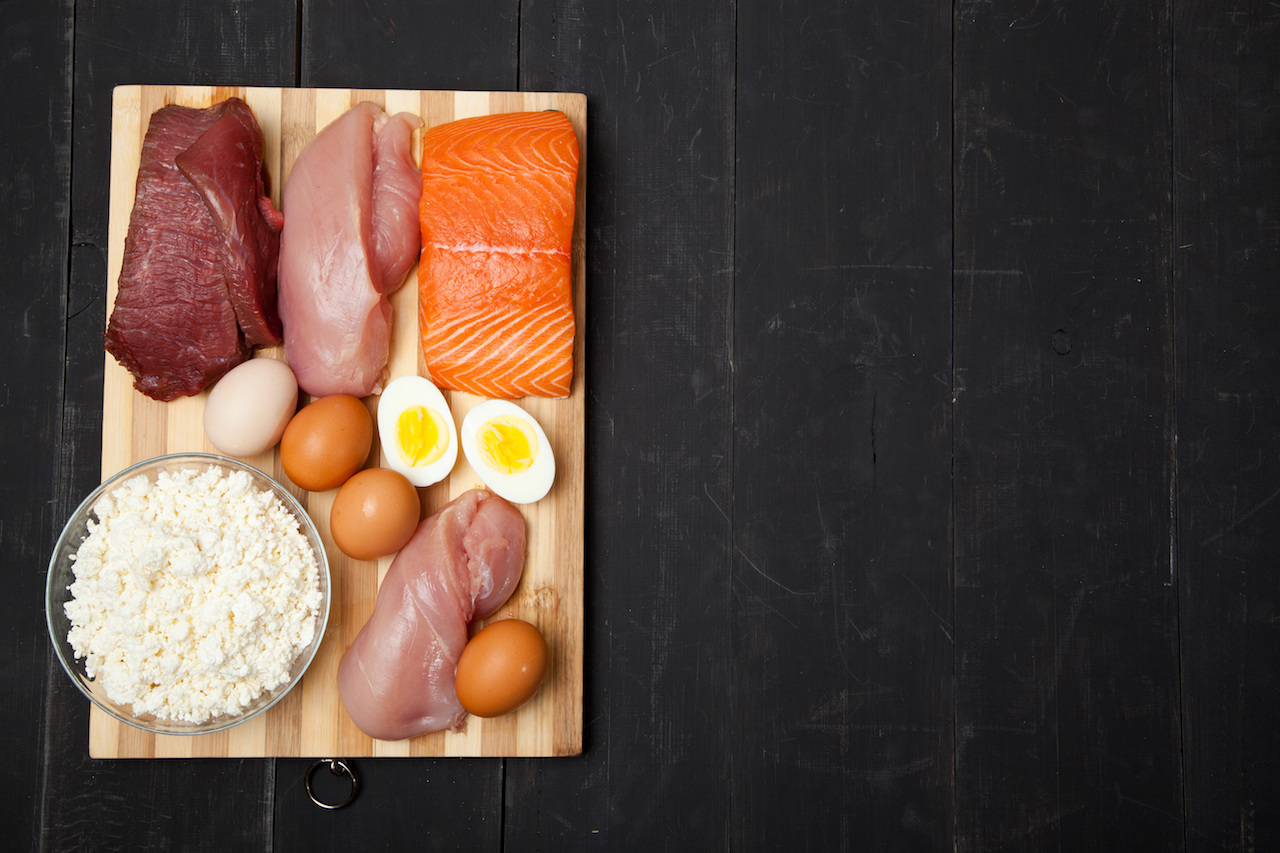Does protein really bulk you up? Is it true that eating nothing but protein helps you lose weight?
First, let’s understand this substance.
Protein is essential for our bodies. This nutrient helps build and repair muscles, red blood cells, enzymes and other tissues. They’re often called “the building blocks of the body” – for good reason.
So, your body needs protein. But how much, and through which sources?
Let’s separate fact from fiction:
“I can only get protein from meat.”
Untrue. Vegans and vegetarians, rest assured: vegetables contain protein too. Quinoa, chickpeas, tofu, tempeh eggs and cottage cheese are packed with protein.
“If I want muscle, I must eat protein.”
Yes and no. Protein can be eaten in large quantities specifically for the purpose of bulking up. If you’re trying to lose weight, it makes sense to eat more protein which minimises muscle loss, and keeps you feeling fuller for longer. But you can’t only eat protein if you’re trying to build muscle. Exercise works together with protein, says research from Purdue University – specifically aerobic and resistance exercise to help your body preserve the muscle.
“All protein is great!”
Not so fast there. Animal proteins (meat, chicken, and fish) differ from plant proteins. Complete proteins contain all the essential amino acids and these are typically found in all types of meat, fish, milk, dairy and eggs. Then there are plant proteins, which while they contain protein, not all are “bioavailable”. As explained through research from the University of Arkansas, “The fibre in some plant sources of protein may prevent the digestion and absorption of some amino acids.” So, this means if you’re a vegan or vegetarian, you’ll need to combine your veggies with wholegrains to make sure you get all your essential amino acids.
The more protein, the better
Not really. A protein-heavy diet leaves you with an unbalanced diet. Filling up on protein leaves no room for nutrients from fruit and vegetables, heart-healthy fats and wholegrains, all of which helps with digestion and weight loss. Remember, you also need carbs for energy. One of the nastier side-effects of heavy protein intake is constipation. Carbohydrates like fruit, vegetables, grains and cereals, particularly the wholegrain varieties, are the main sources of dietary fibre in the diet. Eliminating these foods will inevitably cause severe constipation, which can lead to diverticulitis, and irritable bowel syndrome.
Eating too much protein causes kidney disease
Not true. Research published in Nutrients journal found that excess protein can only affect your kidneys if you have an existing kidney or liver condition.
Good to know
Dietary guidelines advise that you need approximately 56 grams of protein a day (for the average man), and 46 grams a day (average woman).

